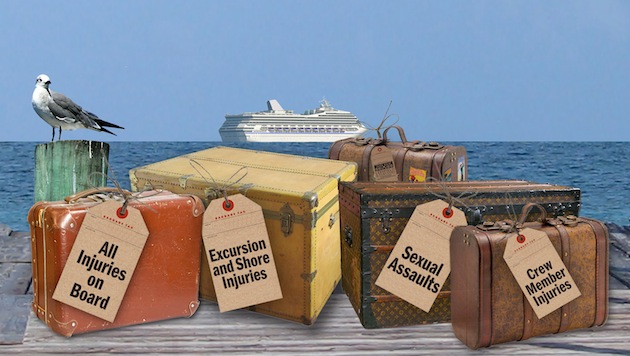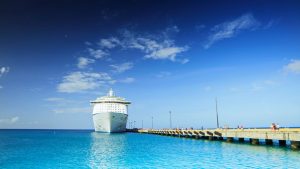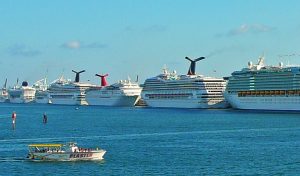Millions around the globe are eagerly awaiting a green light to resume cruising once again. The decision to restart cruise operations carries with it an obligation on behalf of the cruise lines to ensure the safety of the passengers, crew, and residents of the various ports forming the infrastructure of the cruise industry. Cruise enthusiasts should carefully consider the decision to book their next cruise vacation, including locations and precautions.
The cruise line industry has been on “pause” since the pandemic arrived in March 2020. Now, the situation is fluid and unpredictable, with return dates changing like the tides. In the U.S., Carnival Cruise Line plans on resuming cruises in North America on June 27, 2020. Norwegian Cruise Line has delayed North American operations through May 31, 2021. And Royal Caribbean has suspended operations until the start of May 2021. Canada has extended a full ban on cruising until February 28, 2022, and in the UK cruises are on hold into summer 2021. In other parts of the world, some Asian and European cruises have already set sail in the new normal.
When cruises resume in the U.S. they will be subject to a strict safety framework issued by the U.S. Centers for Disease Control and Prevention. The goal is to ensure that ship operators have adequate health and safety protections and crewmember testing protocols in place to stop the spread of the virus. Before fully operational cruises commence, the lines will be required to conduct simulated voyages to test their ability to mitigate COVID-19 risk. Thereafter, a phased return to passenger voyages will be permitted once virus safety and virus spread mitigation has been demonstrated. The Centers for Disease Control and Prevention currently recommend that all people avoid travel on cruise ships, including river cruises, worldwide. Passengers who decide to go on a cruise are instructed to get tested for COVID-19 three to five days in advance of a voyage, and to remain home for a full 7 days after travel even if they test negative after returning to home port. Some cruise lines have indicated they will require all passengers to receive a COVID vaccine prior to boarding. Others, including Norwegian Cruise Line, have already begun requiring the crew to be vaccinated. The cruise lines have indicated they will work with medical and scientific experts to develop best practices for safe sailing.

 Cruise Ship Lawyers Blog
Cruise Ship Lawyers Blog


 The cruising industry has more than doubled in the last two decades. In the last 15 years alone, the number of cruise passengers has increased from 15 million to 30+ million. To satisfy the demand, cruise lines have built increasingly large ships that can host over 5,500 passengers and over 2,300 crew-members. Consequently, the number of injuries sustained by passengers and crew-members has also increased. As a result,
The cruising industry has more than doubled in the last two decades. In the last 15 years alone, the number of cruise passengers has increased from 15 million to 30+ million. To satisfy the demand, cruise lines have built increasingly large ships that can host over 5,500 passengers and over 2,300 crew-members. Consequently, the number of injuries sustained by passengers and crew-members has also increased. As a result, 
 Cruise ships are now floating recreational and theme parks. Their activities range from basketball, tennis, dodge ball, to water slides, rock climbing, sky rides to jogging supplemented by exotic shore excursions. “The industry’s competitive nature has resulted in each cruise line adding more dangerous activities for passengers who are already exposed to shipboard negligence in the maintenance and care of walking surfaces and other pedestrian hazards,” according to Ira Leesfield, Chair of the American Association for Justice Resort Torts Litigation Group.
Cruise ships are now floating recreational and theme parks. Their activities range from basketball, tennis, dodge ball, to water slides, rock climbing, sky rides to jogging supplemented by exotic shore excursions. “The industry’s competitive nature has resulted in each cruise line adding more dangerous activities for passengers who are already exposed to shipboard negligence in the maintenance and care of walking surfaces and other pedestrian hazards,” according to Ira Leesfield, Chair of the American Association for Justice Resort Torts Litigation Group. In the last few months,
In the last few months, 